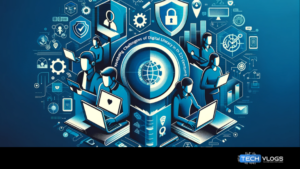The Growing Importance of Digital Literacy
Introduction
In today’s digital age, Importance of digital literacy has become essential for personal and professional success. Digital literacy encompasses a range of skills and knowledge areas that enable individuals to effectively navigate, understand, and utilize digital technologies. This includes not only basic technical skills but also critical thinking, online safety, and digital citizenship.
Key Components of Digital Literacy

1.Digital Skills
Coding/Programming: Understanding the basics of coding languages like Python, JavaScript, and HTML can enhance problem-solving skills and open up numerous career opportunities.
Cloud Computing: Proficiency in using cloud-based services and understanding their benefits and risks are crucial in modern workplaces.
2.Information Literacy
The ability to locate, evaluate, and use information effectively is foundational. This includes discerning credible sources from misinformation and understanding the ethical implications of information sharing.
3.Media Literacy
Social Media Literacy: Understanding the dynamics of social media platforms, recognizing the influence of algorithms, and managing one’s digital footprint are critical skills.
Critical Thinking: Evaluating the accuracy and bias of media content requires strong analytical skills and an understanding of media production processes.
4.Online Safety
Cybersecurity: Protecting personal and professional information from cyber threats involves understanding basic cybersecurity practices, such as using strong passwords, recognizing phishing attempts, and securing network connections.
Data Literacy: Knowing how to handle and interpret data responsibly is vital in safeguarding privacy and ensuring ethical data use.
5.Digital Citizenship
Engaging responsibly in online communities involves understanding digital rights and responsibilities, practicing respectful communication, and recognizing the impact of one’s digital actions on others.
Addressing the Digital Divide
The digital divide refers to the gap between those who have access to digital technologies and the skills to use them, and those who do not. Bridging this divide is essential for ensuring equity and access to opportunities in the digital world.
Equity and Access: Providing access to digital tools and training for underserved communities is vital. This includes affordable internet access, devices, and education programs that focus on digital literacy skills.
Inclusivity in Education: Integrating digital literacy into the curriculum from an early age can help level the playing field. Schools should provide resources and support to ensure all students, regardless of their background, can develop these essential skills.
The Evolution of Digital Literacy
Digital literacy has evolved significantly over the past few decades, driven by rapid advancements in technology and the proliferation of digital devices and internet access. Initially, digital literacy focused on basic computer skills, such as using word processors and navigating the internet. Today, it encompasses a wide range of competencies that are essential for personal and professional success in a digital world.
Expanding Digital Skills

1.Advanced Coding/Programming
Beyond basic coding, understanding more complex programming concepts and languages, such as machine learning, artificial intelligence, and blockchain technology, can provide a competitive edge in the job market.
2.Digital Content Creation
Skills in creating digital content, including videos, podcasts, blogs, and graphics, are increasingly important. These skills are valuable for personal branding, marketing, and engaging with audiences online.
3.Digital Collaboration Tools
Proficiency in using digital collaboration tools like Google Workspace, Microsoft Teams, and Slack is essential for effective teamwork in remote and hybrid work environments.
Enhancing Information and Media Literacy
1.Fact-Checking and Source Evaluation
Developing skills to verify the accuracy of information and assess the credibility of sources is critical. This includes using fact-checking websites, cross-referencing information, and understanding the context of digital content.
2.Media Production Awareness
Understanding how media is produced, including the role of algorithms, advertising, and editorial choices, helps individuals critically analyze the media they consume and create.
Strengthening Online Safety and Cybersecurity

1.Advanced Cybersecurity Practices
Learning about encryption, secure communication channels, and protecting digital identities is crucial in safeguarding against cyber threats. This includes staying updated on the latest cybersecurity trends and threats.
2.Privacy Management
Understanding how to manage personal privacy online, including the use of privacy settings on social media platforms, managing cookies, and understanding data protection laws, is essential for protecting personal information.
Promoting Digital Citizenship
1.Ethical Online Behavior
Emphasizing the importance of ethical behavior online, such as respecting intellectual property rights, avoiding cyberbullying, and engaging in constructive online discourse, is key to fostering a positive digital environment.
2.Civic Engagement and Advocacy
Using digital platforms to participate in civic activities, such as online petitions, social media campaigns, and virtual town halls, can amplify voices and drive social change.
Addressing the Digital Divide
1.Community Programs and Initiatives
Implementing community programs that provide digital literacy training, access to technology, and support services can help bridge the digital divide. Libraries, community centers, and non-profit organizations play a crucial role in these efforts.
2.Policy and Advocacy
Advocating for policies that promote digital equity, such as affordable broadband access, subsidies for digital devices, and funding for digital literacy programs, is essential for ensuring that all individuals can participate fully in the digital society.
Conclusion
Digital literacy is crucial; moreover, it impacts growth, inclusion, and empowerment. Consequently, as technology evolves, our approaches must adapt. Therefore, collaboration is essential. As digital technologies continue to evolve, so must our approaches to importance of digital literacy, ensuring that all individuals have the skills and knowledge needed to thrive in a digital society. Governments, educational institutions, businesses, and communities must unite to promote digital literacy. Consequently, this joint effort can bridge the digital divide and create a more inclusive, innovative, and equitable society. Furthermore, by doing so, they can bridge the digital divide and foster a more inclusive, innovative, and equitable world.


1 thought on “The Growing Importance of Digital Literacy”